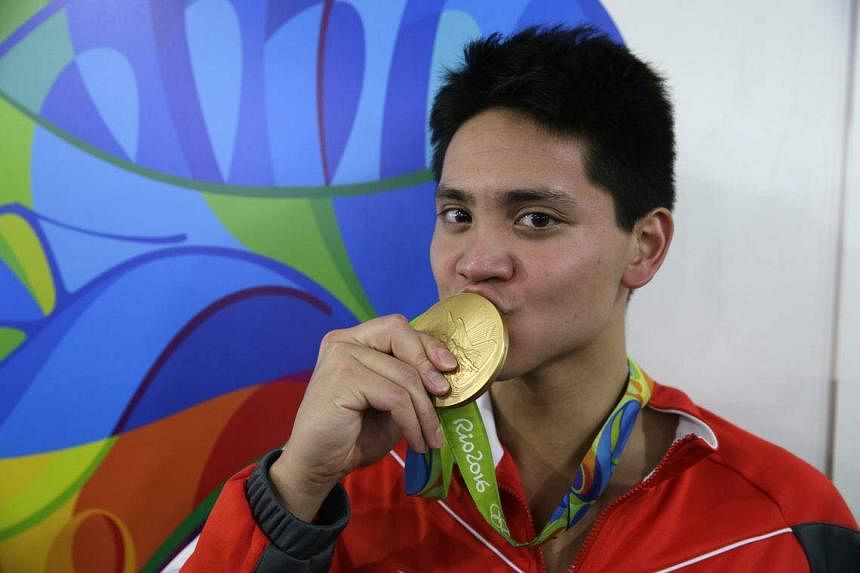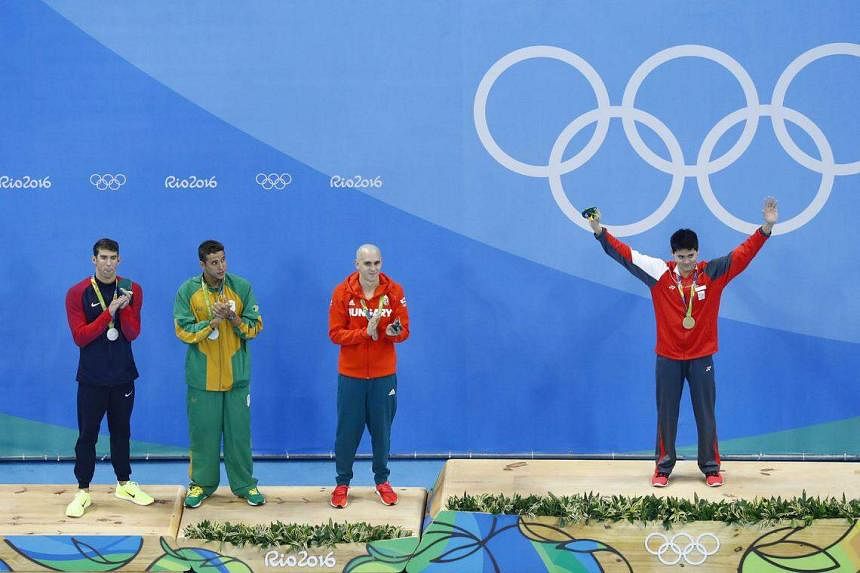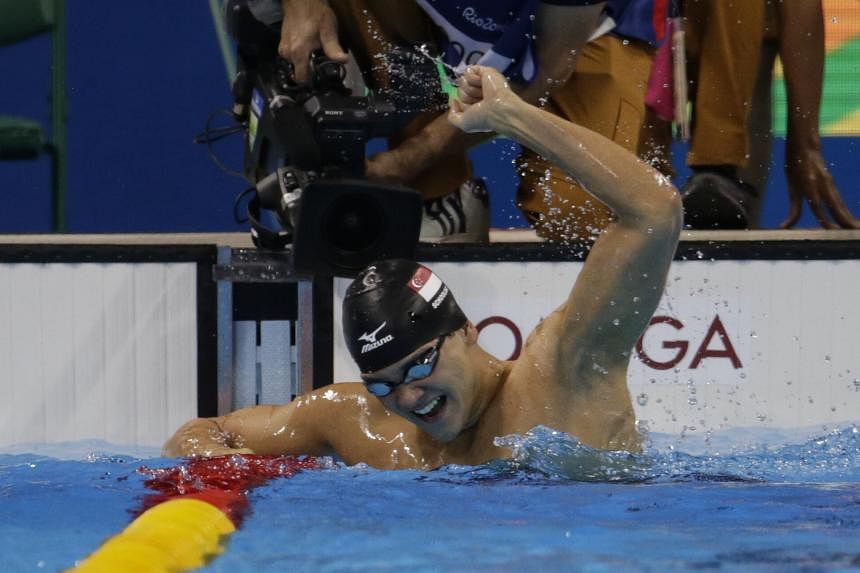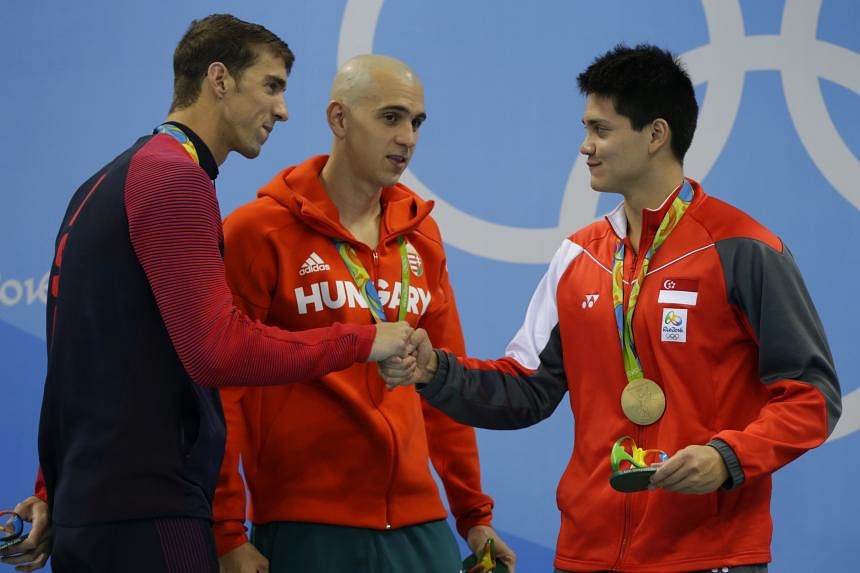In the Museum of Modern Art in New York rests an uncommon exhibit. It is a grainy photograph of a footprint from July 1969. It belongs to Edwin Aldrin, the second man on the moon. The extraordinary always leave an impression.
Joseph Schooling did not go as far as the moon, but one might say he circumnavigated the earth in water. After all, he’d swum at least 40,000km before he arrived at a destination most athletes never reach. A boy from our suburbs on the highest step of an Olympic podium with Michael Phelps looking up at him.
This picture, indelibly imprinted upon us, should hang in a museum, too.
Everything finishes. Athletic careers peter out and we move on to another star. But we look back with gratefulness for Schooling took us to new places, let us dream in a size and colour we hadn’t dared and opened conversations we’d never considered. Could he retain his Olympic title? He didn’t, but did we ever imagine we’d be talking about such a thing?
Nations wish for happiness, prosperity and also citizens to admire. Someone to win a Nobel Prize, head Unicef, star in a Martin Scorsese film, cure a disease. For us, these things would remind a small land that we are constrained only by space not by imagination.
The great contribution frees a people. Olympic gold, for instance, was where other nations went. For Singapore it was merely an idea, but in 50.39 seconds Schooling turned it into a war cry. He made history but also extended our psychological geography. When we told our kids that the sky was the limit it was no longer a bland figure of speech. Proof had come the hard way, in a hard sport.
In the Bay of Zea, where the ancient Greeks parked their galleys, the first swimming events of the modern Olympics were held in 1896. It was one of the nine original sports and was ruled by giants – Michael Gross had a wingspan of 2.13m – and heroes who played Tarzan in the movies. It took 28 Games for Schooling to take a South-east Asian to gold.
“He beat Michael” has become a statement so casually tossed into conversation that we forget its weight. Phelps was 10 years older but he’d won three consecutive 100m butterfly golds at the Olympics. This was akin to racing god. This was Usain Bolt two lanes down.
How do you beat such athletes, who are born to confident sporting nations? Phelps had Mark Spitz and Matt Biondi before him. Carlos Alcaraz has Rafael Nadal as Spanish evidence in the racket arts. Paths had been cleared for them, but not for Schooling. Sometimes harder than just coming first is to also be the first.

We see great athletes but rarely know them, for the mental territory they tread is foreign and the way they define success is not as simplistic as ours. Schooling, for instance, will tell you his greatest swim wasn’t even the 100m butterfly in Rio but two obscure 200m butterfly races before it.
One was in 2007 in Singapore and another in the NCAA. In both he was trailing badly, in both he barely won. In the 200m, he explained, “you go through an immense amount of pain”. Grit is what he asked from himself on those days and grit is what he found. Satisfaction, he’s telling us, is more complicated than just an Olympic medal.
The champion’s life is hard to condense, for it is a complex, painful journey made by imperfect, fascinating folk. Schooling, author of inspiring tales and also cautionary ones, gave us insight into his planet. He wore an easy grin but was combustible in training. Second-best as a philosophy didn’t appeal to him. His desire ran deep, his cockiness shone, and his complacency after he won was intriguing.

In sport the chase is the fun, the victory a relief and then sometimes a void. Not everyone has the will for another depleting, four-year chase. Schooling taught us that we could win and this was enough. Someone will come one day to teach us the next lesson.
Nations bestow famous people with all manner of awards but Singaporeans gave Schooling the sweetest of gifts. Nothing to frame or pin on a lapel, but something more profound. They lined the streets to cheer him in 2016 and it was a collective voice of affection and approval.
In the end, why do we go to arenas? For wonder, of course. For that instant when a human finds his highest athletic expression. When he fights to overcome his frailties, is brave enough to believe he can dominate the world, and produces his very best when surrounded by the planet’s best.
Schooling offered us this wonder and in doing so left us something precious.
Footprints to walk in.



